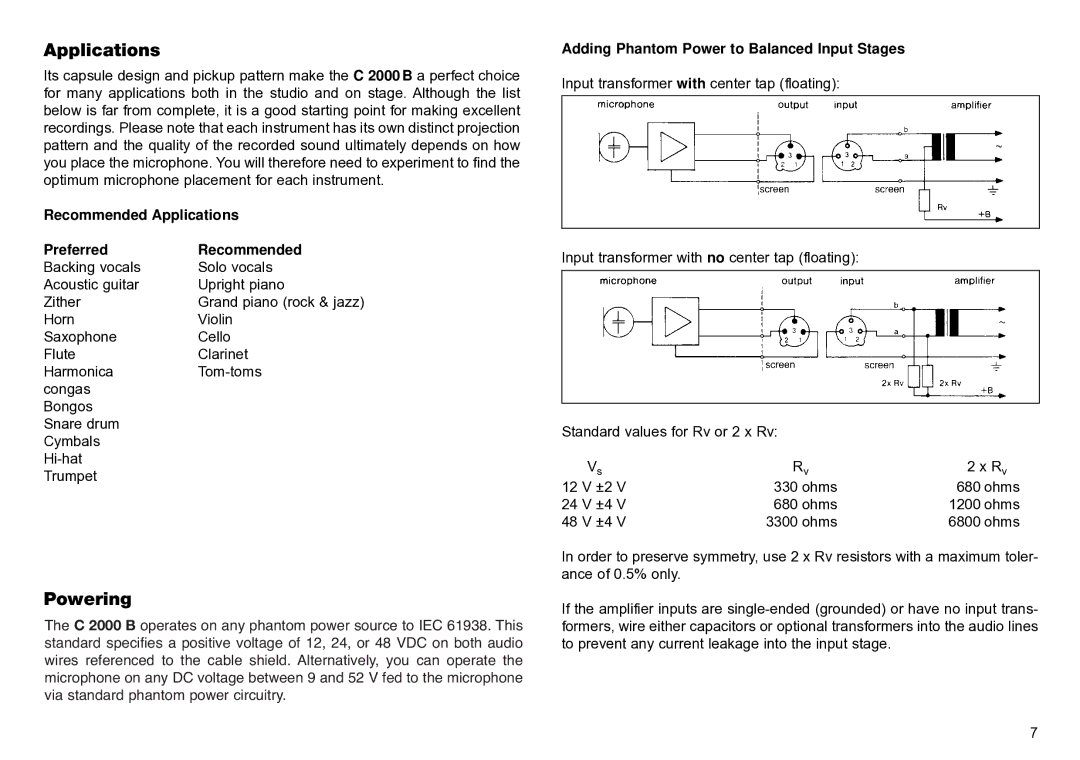
Applications
Its capsule design and pickup pattern make the C 2000 B a perfect choice for many applications both in the studio and on stage. Although the list below is far from complete, it is a good starting point for making excellent recordings. Please note that each instrument has its own distinct projection pattern and the quality of the recorded sound ultimately depends on how you place the microphone. You will therefore need to experiment to find the optimum microphone placement for each instrument.
Recommended Applications
Preferred | Recommended |
Backing vocals | Solo vocals |
Acoustic guitar | Upright piano |
Zither | Grand piano (rock & jazz) |
Horn | Violin |
Saxophone | Cello |
Flute | Clarinet |
Harmonica | |
congas |
|
Bongos |
|
Snare drum |
|
Cymbals |
|
| |
Trumpet |
|
Powering
The operates on any phantompowersourceto IEC 61938. This
standardC 2000specifiesB a positive voltage of 12, 24, or 48 VDCto onDINboth45 596audio/ IECwires61938referenced. This standardto the cablespecifiesshieldpositive. Alternatively,voltage ofyou12,can24, operateor 48 VDCthe onmicrophonethe two audioon anylinesDCreferencedvoltage betweento the cable9 andshield52 V.fedAlternatively,to the microphoneyou can
operatevia standardthe microphonephantom poweron anycircuitryDC voltage. between 9 and 52 V fed to the microphone via standard phantom power wiring.
Adding Phantom Power to Balanced Input Stages
Input transformer with center tap (floating):
Input transformer with no center tap (floating):
Standard values for Rv or 2 x Rv:
Vs | Rv | 2 x Rv |
12 V ±2 V | 330 ohms | 680 ohms |
24 V ±4 V | 680 ohms | 1200 ohms |
48 V ±4 V | 3300 ohms | 6800 ohms |
In order to preserve symmetry, use 2 x Rv resistors with a maximum toler- ance of 0.5% only.
If the amplifier inputs are
7
